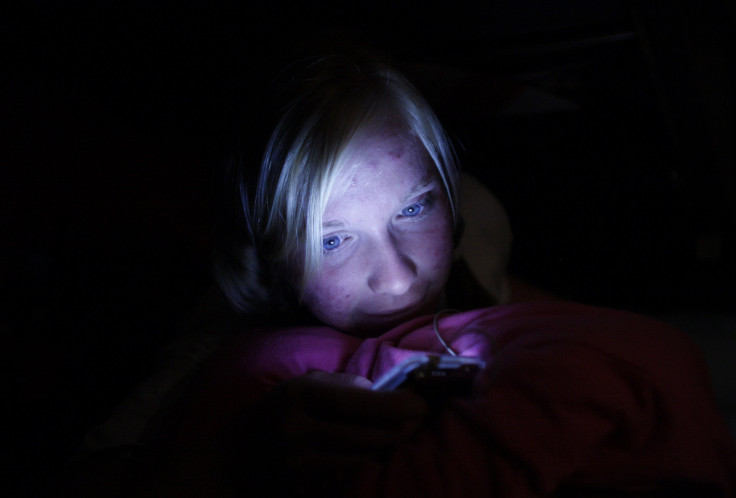Light from gadgets, not the apps, causes younger teens to be sleep-deprived

A simple light exposure at night can significantly disrupt the sleep time of kids, particularly lights coming from tablets or phones, a new study suggests. The findings show taking a gadget an hour before bed could really hurt a kid’s sleeping pattern.
The study, published in the journal Clinical Endocrinology & Metabolism, says people can fall asleep as quickly as they otherwise would have if they are exposed to enough light at night. But the findings reveal a different effect to the sleep biology of boys and girls aged 9 to 15.
Those younger teens in the earlier stages of puberty were significantly sensitive to light at night compared to older teens. In the middle of their puberty, teens turn more vulnerable to suppression of the hormone, melatonin, which is a key to sleep timing, the researchers said.
For the study, the researchers suppressed the production of the sleep-timing hormone within an hour of night-time light exposure. The process shows the brighter the light, the more melatonin was suppressed.
The researchers found that among 38 children in early to middle puberty, an hour of 15 lux of light, or the light the same with dim “mood” lighting, suppressed melatonin by 9.2 percent, and an hour of 150 lux, or a normal room light, reduced it by 26 percent. The light exposure was maximised to 500 lux, or as bright as light in a supermarket, and it reduced the young teens’ melatonin by 36.9 percent.
Those in the late or post-puberty stage were also affected but not as much, researchers said. The 29 adult teens were also exposed to the same amounts of light, which 15 lux did not suppress melatonin at all; 150 lux reduced melatonin by 12.5 percent and 500 lux reduced it by 23.9 percent.
“Small amounts of light at night, such as light from screens, can be enough to affect sleep patterns,” said Mary Carskadon, senior author of study and a professor of psychiatry and human behaviour at Brown University. The effects were the same between boys and girls.
Carskadon said that students who have tablets or TVs or computers, even an ‘old-school’ flashlight under the covers to read, are pushing their circadian clocks, or the cycle of their sleep, to a later timing. The technology makes it harder to go to sleep and wake up at times early the next morning for school.
The findings have a significant implication for kids and young teens as they head back to school, the researchers said, and the children and their parents should limit the use of screens at bedtime. It has been found by another study that 96 percent of teens today use at least one gadget or technology in the hour before going to bed.
Contact the writer at feedback@ibtimes.com.au or tell us what you think below




















